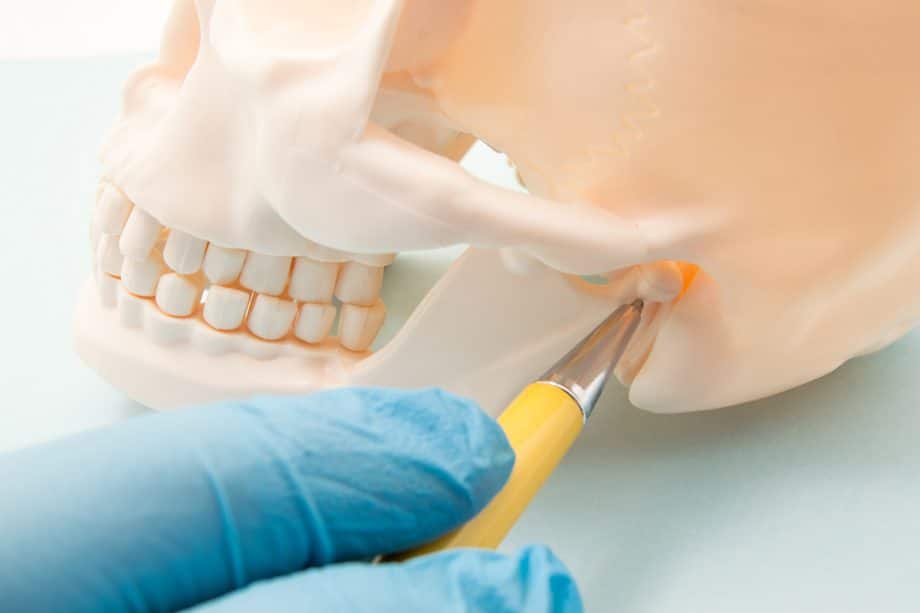Coping with TMJ pain can be difficult. However, working with a dental provider who is skilled in the treatment of TMJ disorders can help you find relief. Getting treatment can improve your quality of life and also may help you avoid more serious problems later on. Here’s a closer look at TMJ pain and how it can be treated.
What Are the Symptoms of a TMJ Disorder?
Your temporomandibular joints are located on each side of your head and connect your jawbone to your skull. You use these joints whenever you open and close your mouth to eat, talk, yawn, or even smile.
When you have a temporomandibular joint disorder, it may result in pain and symptoms such as:
- Headaches
- Soreness in the cheek or jaw area
- Pain in or around the ears
- Facial pain
- Tight jaws
- Popping or clicking sounds when opening mouth
- Locking of the jaw
- Difficulty chewing
What Causes TMJ Pain?
There can be a number of different causes of TMJ pain, and sometimes multiple factors may be involved. Some possible contributing factors may include:
- Teeth grinding or clenching of the jaw (often related to stress)
- Misalignment of the teeth or jaw
- Trauma or injury to the teeth or jaw
- Arthritis, which may affect one or both sides of the jaw
Getting professional care is key to successful treatment. Once you and your provider better understand your condition and what may be causing it, appropriate steps can be taken to treat it.
How Can TMJ Pain Be Treated?
Treatment depends on your condition and the severity of your problem. Often, TMJ pain can come and go. However, if it persists and is left untreated, it may worsen.
Some non-surgical treatments may include:
- Self-managed care – This involves making changes at home such as eating soft foods, using ice packs, and avoiding extreme jaw movement. Some doctors also recommend following an anti-inflammatory diet to reduce pain and inflammation.
- Anti-inflammatory medications – Over-the-counter pain medications or nonsteroidal anti-inflammatory drugs (NSAIDs), such as ibuprofen, can be helpful in relieving TMJ pain. However, these medications are not meant for long-term use. Talk with your doctor if symptoms persist.
- Botox injections – While many people use Botox for cosmetic reasons, it can also provide relief for TMJ pain by helping to relax tense jaw muscles. Therapeutic results typically may last for 3-4 months after a Botox treatment.
- Stabilization splints – A stabilization splint is a removable device that you wear over your teeth to help stabilize the jawbone. It may be recommended to help relax the jawbone and prevent teeth grinding or clenching.
In more severe cases, surgical treatments (jaw joint replacements) may be necessary. This option may be considered as a last resort after more conservative, non-surgical treatments have failed.
Why Is Treatment Important?
Getting treatment for TMJ pain doesn’t just help alleviate your discomfort. It can also impact other things like your sleep and your dental health. For example, if your TMJ pain is associated with teeth grinding, this may cause your teeth to shift or become worn down over time. Treatment can help prevent these problems.
TMJ Treatment in Lindenwold, NJ
Here at Lindenwold Dental Center, we provide specialized pain management services for treating TMJ disorders. If you need help for your TMJ pain, we’re here for you. Call 856-783-3777 to learn more and schedule an appointment.

